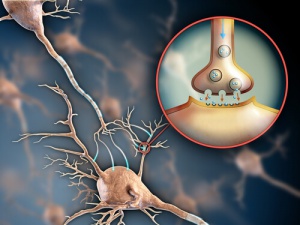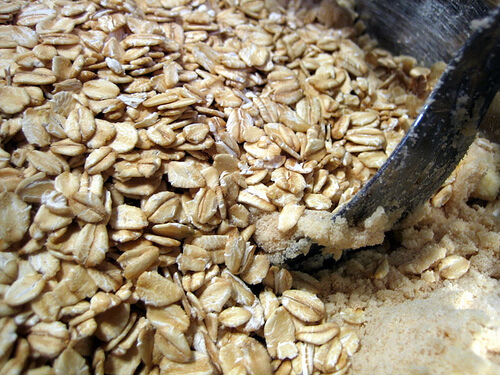6 Ways to Strengthen Your Nervous System


Reviewed and approved by the doctor Karla Henríquez
The nervous system, one of the most complex and important parts of our body, is responsible for responding to external and internal stimuli.
Since the nervous system is responsible for controlling most of our vital functions (breathing, heartbeat, hunger, thirst, posture, etc.) as well as our emotions (happiness, sadness, etc.), it’s important to strengthen it naturally to ensure a good quality of life.
Three beneficial foods for your nervous system
There are some specific foods that positively regulate our nervous system:
- Baker’s yeast: Thanks to its B vitamins, it helps regulate the central nervous system. Therefore, it can help improve cases of depression, anxiety, stress, apathy, or lack of appetite. You can consume it in powder form mixed with juice or yogurt. You can also take tablets if you don’t like the slightly bitter flavor. Some brands even sell it debittered.
- Oatmeal: This delicious cereal acts as a nervous system stabilizer. It calms irritable states and mild anxiety and relieves insomnia, including in small children. It also improves mental performance. It’s strangely a food that’s both relaxing and energizing. You can cook it with milk and a little cinnamon or eat it with creamed vegetables. You can also drink oatmeal “milk”.

- Bee pollen: Pollen is a superfood. It regulates the blood’s pH and nervous system function thanks to its B vitamins. Take a tablespoon of ground pollen every morning, mixed with a bit of water, juice, or yogurt.
Magnesium
Nervous system alterations such as insomnia, anxiety, hyperactivity, or panic attacks can be symptoms of a lack of magnesium in our bodies. Doctors recommend consuming magnesium-rich foods such as:
- Cocoa: Dark chocolate has almost 500 mg of magnesium per 3.5 ounces.
- Green leafy vegetables: Swiss chard, lettuce, spinach.
- Fruits: Bananas, apricots, avocados, melons, plums.
- Nuts: Almonds, cashews, hazelnuts, walnuts.
- Legumes: Peas, lentils.
- Cereals: Brown rice, oats.
- Seeds
- Potatoes
- Pumpkin

You can also take magnesium supplements. In this case, take three grams every day three times a day so the body can absorb it properly.
Medicinal plants
The following medicinal plants help boost the nervous system. You can make teas with them, take them as supplements, use them as air fresheners in your home, or apply them to your skin as essential oils:
- Lemon balm
- Ginkgo biloba
- Hypericum
- Basil
- Lavender
- Passionflower
Read more: Medicinal Plants That Help Improve Memory
Sunlight
Sunlight is an excellent nervous system regulator and also provides vitamin D. To benefit from it, you can sunbathe for 10 to 15 minutes every day, preferably in the mornings or late afternoons.
Walking barefoot in a natural environment
Walking barefoot on moist soil, dewy grass, beach sand, a river, on in the sea for at least half an hour a day is the cheapest and healthiest way to balance your nervous system. In addition, it helps eliminate electromagnetic radiation that we absorb from continuous contact with electronic devices.
Water therapy
Water at different temperatures helps balance our nervous system. You can do various therapies:
- Soak a towel in water and rub your body with it, following the following pattern: hands and shoulders, feet, torso.
- Alternating arm baths. Put your arms in hot water, one at a time. Then, put them in cold water.
- Ending a bath with a cold shower is very beneficial.
- Finally, magnesium sulfate baths are very relaxing and revitalizing.
Photos courtesy of MGF/Lady Disdain and John Loo
All cited sources were thoroughly reviewed by our team to ensure their quality, reliability, currency, and validity. The bibliography of this article was considered reliable and of academic or scientific accuracy.
- Hobert, O. (2005). Specification of the nervous system. WormBook. https://doi.org/10.1895/wormbook.1.12.1
- Ferreira, I. M. P. L. V. O., Pinho, O., Vieira, E., & Tavarela, J. G. (2010). Brewer’s Saccharomyces yeast biomass: characteristics and potential applications. Trends in Food Science and Technology. https://doi.org/10.1016/j.tifs.2009.10.008
- Serefko, A., Szopa, A., Wlaź, P., Nowak, G., Radziwoń-Zaleska, M., Skalski, M., & Poleszak, E. (2013). Magnesium in depression. Pharmacological Reports. https://doi.org/10.1016/S1734-1140(13)71032-6
- Eby, G. A., & Eby, K. L. (2006). Rapid recovery from major depression using magnesium treatment. Medical Hypotheses. https://doi.org/10.1016/j.mehy.2006.01.047
- Boyle, N. B., Lawton, C. L., & Dye, L. (2016). The effects of magnesium supplementation on subjective anxiety. Magnesium research, 29(3), 120-125. https://www.ncbi.nlm.nih.gov/pubmed/27869100
- El-Naggar, R. E., & Attia, W. Y. (2015). Brewer’s Yeast Supplementation Enhances Immune Response of Aged Mice. The Egyptian Journal of Immunology.
- Gilaberte, Y., Aguilera, J., Carrascosa, J. M., Figueroa, F. L., de Gabriel, J. R., & Nagore, E. (2011). La vitamina D: evidencias y controversias. Actas dermo-sifiliográficas, 102(8), 572-588. https://www.sciencedirect.com/science/article/abs/pii/S0001731011001931
- HUIDOBRO, J., & TERRADILLOS, L. El polen. https://www.researchgate.net/profile/Jesus_Simal-Lozano/publication/235697660_El_Polen_Melisopalinologia_y_Polen_Apicola/links/0deec5149a7e1d7d0c000000/El-Polen-Melisopalinologia-y-Polen-Apicola.pdf
- Martinez-Villaluenga, C., & Peñas, E. (2017). Health benefits of oat: current evidence and molecular mechanisms. Current Opinion in Food Science, 14, 26-31. https://www.sciencedirect.com/science/article/abs/pii/S2214799317300073
This text is provided for informational purposes only and does not replace consultation with a professional. If in doubt, consult your specialist.








